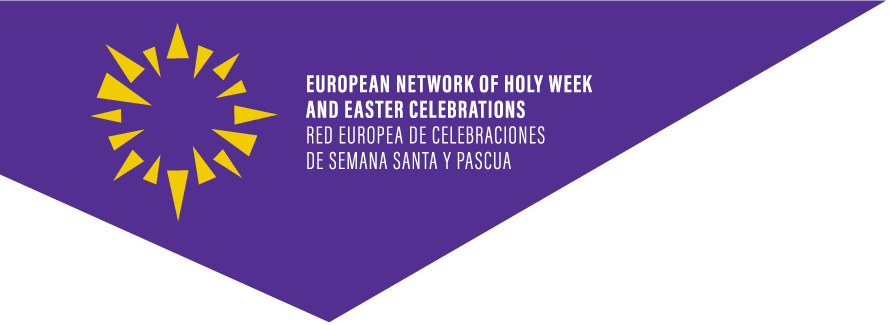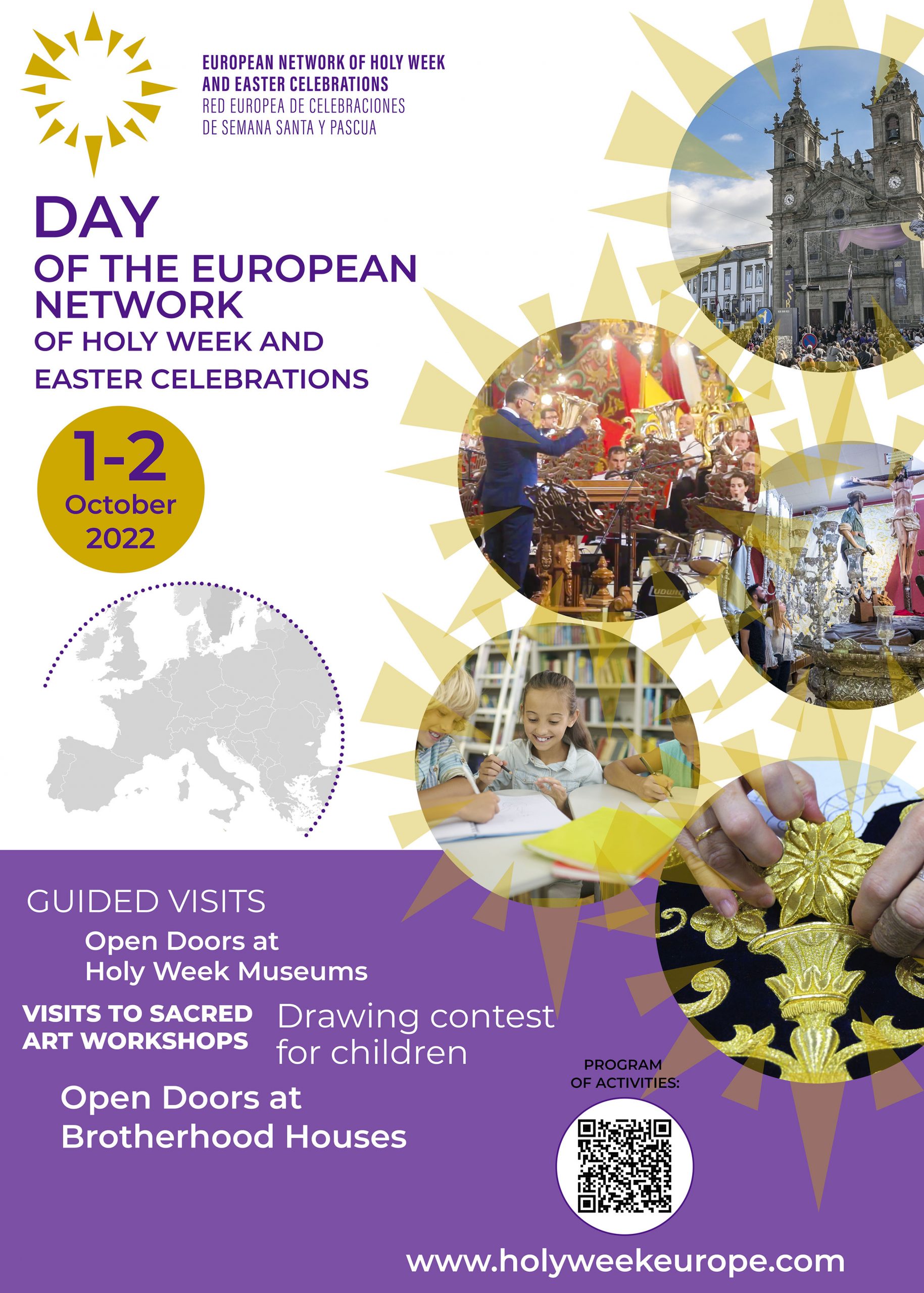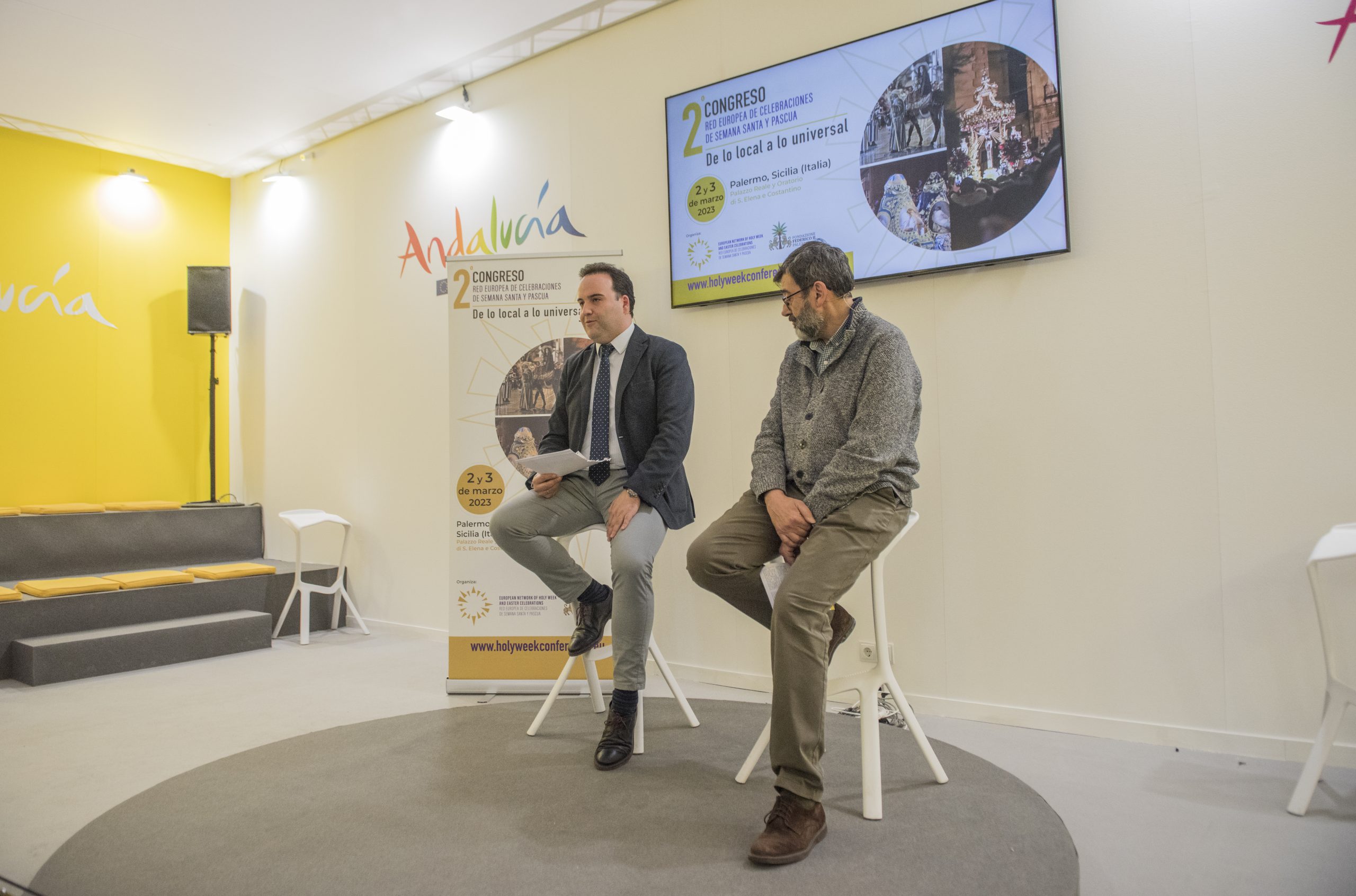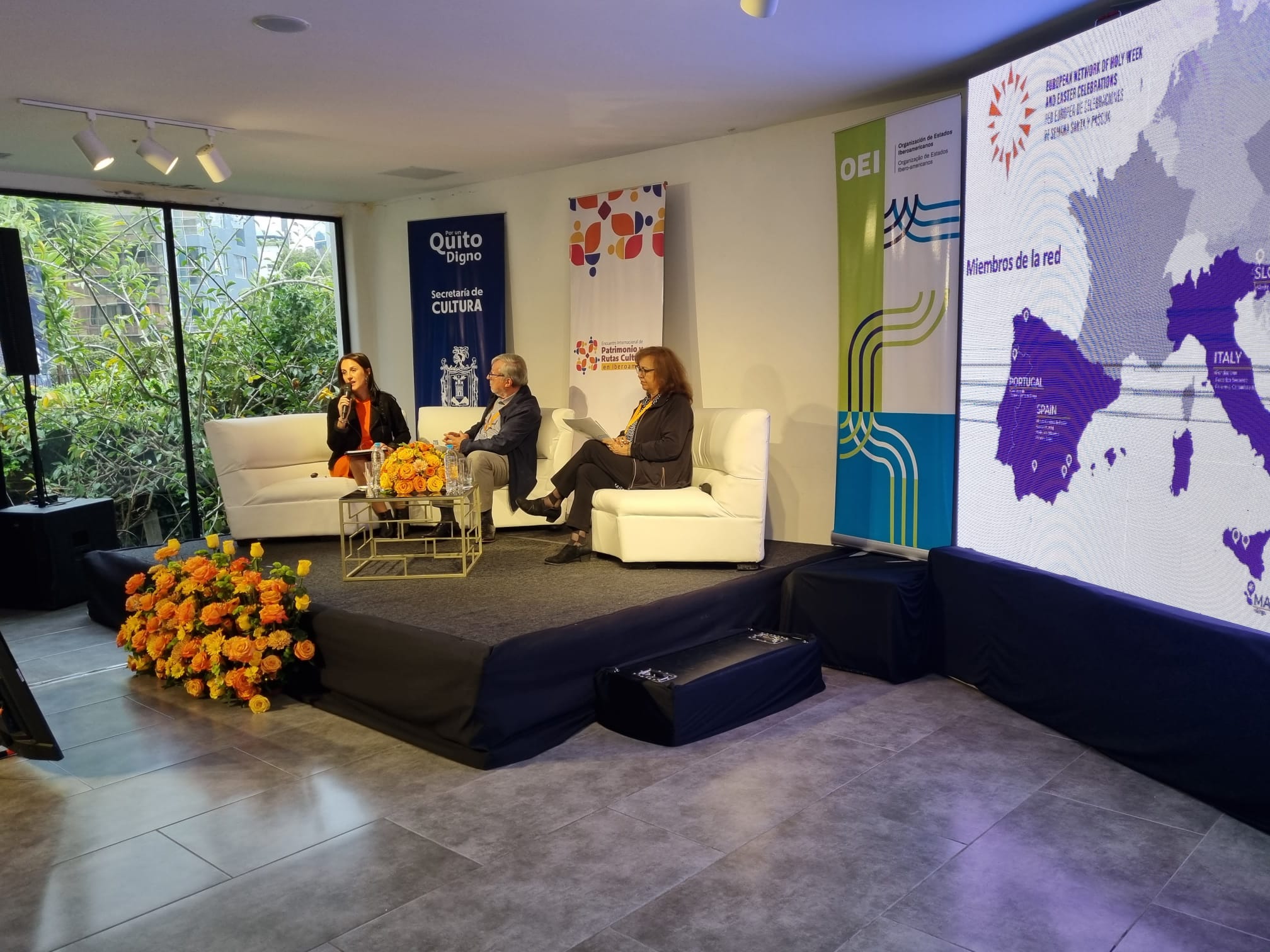
The European Network participates in the International Meeting on Heritage and Cultural Routes in Ibero-America
11.11.2022.- The European Network of Holy Week and Easter Celebrations is participating these days in the International Meeting of Heritage and Cultural Routes in Ibero-America that is being held in the city of Quito (Ecuador).
The event, organized by the National Office of Ecuador of the Organization of Ibero-American States for Education, Science and Culture (OEI), takes place at the Benjamín Carrión Bellavista Cultural Center yesterday and today. Its objective is to value cultural tourism, its experiences and challenges. More than 20 international experts participate in the Meeting, including representatives from Ecuador, Argentina, Peru, Santiago de Chile, Bolivia or Panama and from organizations such as the European Institute of Cultural Routes of the Council of Europe, the International Council of Monuments and Sites, and the road to Santiago.
In this framework, the coordinator of the Technical Secretariat of the European Network of Holy Week and Easter Celebrations, Encarnación Giráldez, participates offering a conference under the title ‘Celebrating cultural diversity through cultural heritage’, within the framework of the block ‘ Celebrating cultural heritage: Religiosity and intangible heritage’ moderated by Norma Campos from Cultural Vision (Bolivia) and in which a representative from Quito also participates to address Holy Week in Quito.
Cooperation in the field of cultural heritage constitutes a propitious space for the promotion of actions that have an impact in the social, cultural, educational and economic spheres, in addition to serving as an operational and dynamic base to promote the place of heritage as an engine of development in the field of cultural tourism, the generation of employment and the transformation in isolated or depressed areas, assuming the important dimension of intangible heritage or living heritage.
In this line, the role that Cultural Routes can have as open laboratories for action and collaboration that favor the connection of people, institutions and networks, and value the local natural and cultural heritage, both material and immaterial, stands out. They constitute a motor to contribute to improving the quality of life of people and the sustainable development of the territories, in addition to serving as a stimulus for educational actions and that have the capacity to disseminate and promote the concepts around climate change and the importance of sustainability for future generations.
Precisely, one of the main vectors of this initiative refers to the values in terms of rights and cultural diversity, as pillars in the project, which contribute to promoting the exercise of cultural democracy, access to culture, participation and intercultural dialogue between different spaces and geographies.
More about the European Network
The European Network of Holy Week and Easter Celebrations was created in 2019 and includes the Federico II Italian Foundation, representing the municipalities of Palermo and Caltanissetta, in Sicily (Italy); the municipality of Birgu in Malta; the Commission for Lent and Holy Week Celebrations of Braga, in Portugal; the Representations of the Passion of Christ in Skofja Loka, Slovenia; the municipalities that are part of the Caminos de Pasión route: Alcalá la Real in Jaén, Baena, Cabra, Lucena, Priego de Córdoba and Puente Genil in Córdoba and Carmona, Écija Osuna and Utrera in Seville. Also within the Spanish geography we find Orihuela in Alicante; Lorca in Murcia and Viveiro in Lugo.
Its objective is to promote and disseminate cultural heritage, both material and immaterial, related to the celebrations of Holy Week and Easter through actions that value this heritage, promote sustainable tourism development around it and contribute to safeguard the intangible heritage through scientific work and research. In the same way, its main purpose is to join efforts and synergies to consolidate a model of study, safeguarding and dissemination of the heritage of the traditions of Holy Week and Easter in Europe.
